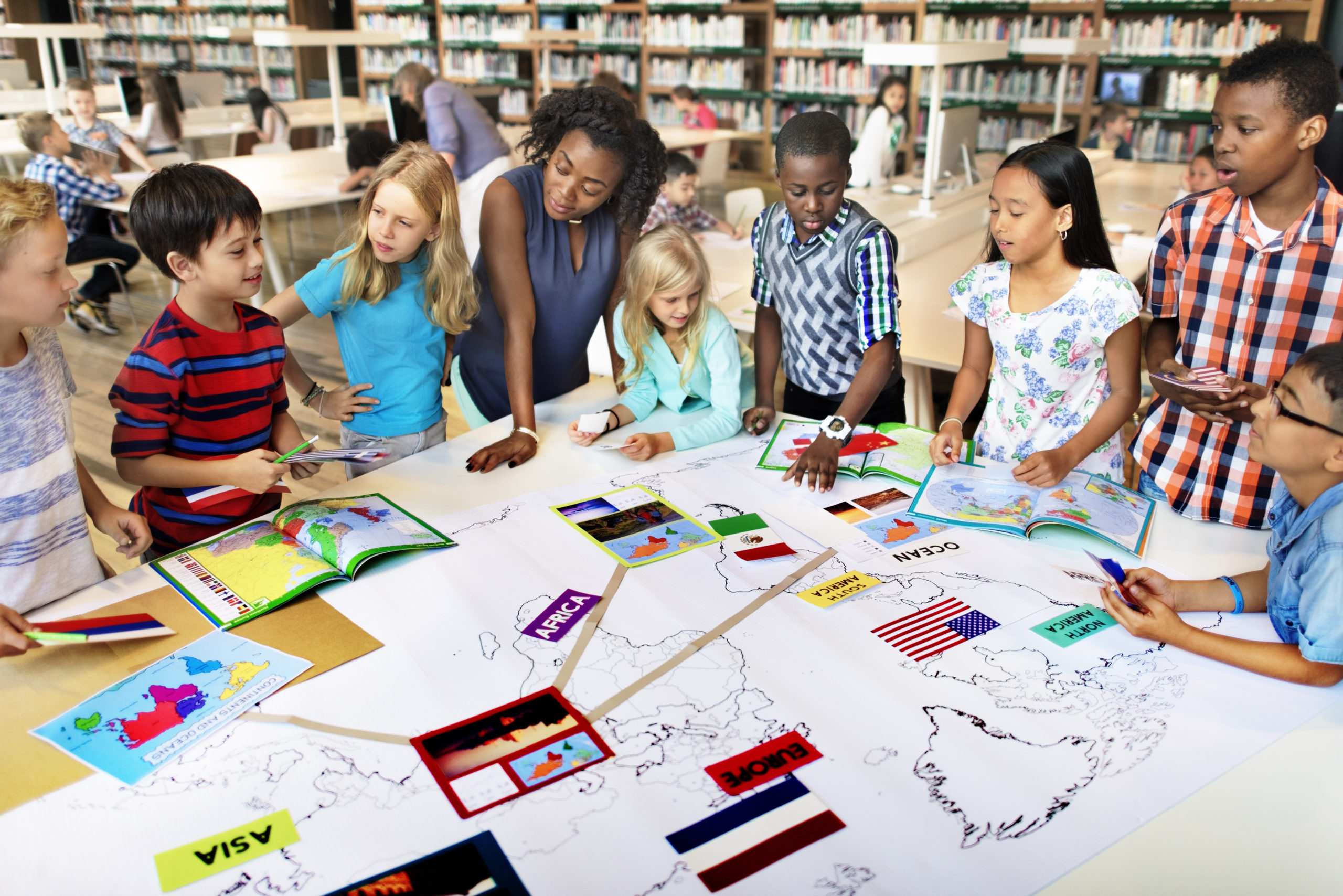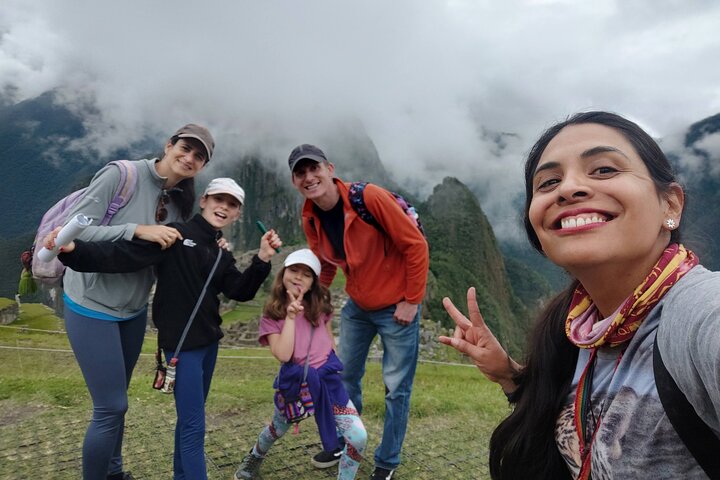10 Tips for Nurturing Multicultural Family Bonds
Immerse yourself in the diversity in your family to bond deeply and understand one another better. Communicate openly, showing respect for different viewpoints. Share your family stories and histories to unite through your unique backgrounds. Engage in cultural activities together to create lasting memories and celebrate each other’s traditions. Explore diverse cuisines, discovering new flavors and cooking techniques as a family. Celebrate important cultural holidays to strengthen your cultural connection and identity. Teach and learn from one another to foster a deep sense of mutual respect and understanding. Prioritize respect and empathy to cultivate strong multicultural family bonds.
Key Takeaways
- Celebrate diverse cultural differences to foster unity and understanding.
- Share family stories and histories to strengthen multicultural bonds.
- Participate in cultural activities to create shared experiences.
- Cook and enjoy diverse cuisines to explore different culinary traditions.
- Learn each other’s languages for deeper communication and connection.
Embrace Cultural Differences

To foster strong multicultural family bonds, actively embrace and celebrate the diverse cultural differences present within your family unit. Embracing traditions from various cultures can create a rich tapestry of experiences that strengthen family ties. By incorporating practices from different backgrounds, you show respect for each family member’s heritage, fostering a sense of belonging and unity.
Celebrating diversity within your family can lead to a deeper understanding and appreciation of different customs and beliefs. It allows for open conversations about the significance of various traditions, helping family members learn from one another. Through this exchange, you can broaden your perspectives, develop empathy, and cultivate a more inclusive environment where everyone feels valued.
Communicate Openly and Listen
To foster strong multicultural family bonds, it’s essential to hone your active listening skills.
By actively listening to each family member’s thoughts and feelings, you demonstrate respect for their unique perspectives.
Cultivating open dialogue allows for a deeper understanding of diverse viewpoints, fostering a sense of unity within the family unit.
Active Listening Skills
Engage in active listening by genuinely focusing on the speaker’s words and non-verbal cues to foster meaningful communication in multicultural family interactions. Active listening involves not only hearing but also understanding the emotions and perspectives behind the words spoken. By practicing active listening, you can build empathy and strengthen connections within your multicultural family unit.
Communication skills play a vital role in nurturing multicultural family bonds. Through active listening, you demonstrate respect for the speaker’s thoughts and feelings, regardless of cultural differences. This act of empathy building can bridge gaps and cultivate understanding between family members from diverse backgrounds. Non-verbal cues, such as body language and facial expressions, also offer valuable insights into the speaker’s emotions, enabling you to respond appropriately.
In multicultural settings, connection fostering through active listening is essential for creating a supportive and harmonious family environment. By honing your active listening skills, you show a willingness to engage with others authentically, promoting mutual respect and understanding in your interactions.
Cultivate Open Dialogue
How can fostering open dialogue within your multicultural family enhance communication and understanding among members from diverse backgrounds?
Cultivating open dialogue involves more than just talking – it requires active listening and cultural appreciation. Essential listening is vital in open dialogue as it shows respect for the speaker and their perspective. By actively listening to family members from different cultural backgrounds, you can gain insights into their values, beliefs, and experiences, fostering a deeper connection and understanding within the family.
Open dialogue encourages family members to express themselves freely, leading to more meaningful interactions and increased family connections. When individuals feel heard and understood, it creates a sense of belonging and acceptance, strengthening the family bond.
Additionally, through open dialogue, family members can share their cultural backgrounds and traditions, promoting cultural appreciation within the family.
Respect Diverse Perspectives
Regularly engaging in open and respectful communication with family members from diverse backgrounds fosters understanding and strengthens multicultural bonds. By embracing cross-cultural perspectives and actively listening to the diverse viewpoints within your family, you can cultivate empathy in relationships and create a harmonious environment where everyone feels valued and heard.
Multicultural values emphasize the importance of recognizing and appreciating the unique backgrounds, experiences, and beliefs that each family member brings to the table. This diversity appreciation isn’t only enriching but also essential for fostering a sense of belonging and unity within your multicultural family unit.
When you communicate openly and listen attentively to the perspectives of others, you demonstrate respect for their unique experiences and viewpoints. This level of empathy in relationships promotes inclusivity and understanding, laying the foundation for strong multicultural bonds.
Share Family Stories and Histories

Engaging in the tradition of sharing family stories and histories can offer a profound insight into your cultural heritage and strengthen the bonds within your multicultural family.
By exchanging narratives and experiences, you not only preserve your family’s unique history but also foster a sense of belonging and unity among its members.
Embracing the diverse backgrounds and narratives within your family can create a rich tapestry of shared experiences that celebrate the beauty of multiculturalism.
Family Storytelling Tradition
Sharing family stories and histories plays an essential role in fostering multicultural family bonds, weaving a rich tapestry of heritage and connection among generations. Through storytelling techniques passed down through oral traditions, families preserve and pass on valuable family memories and generational stories. These narratives hold cultural significance, helping family members understand their roots, values, and traditions.
In multicultural families, combining various storytelling styles enriches the tapestry of shared experiences. Different cultures bring unique perspectives, myths, and legends that contribute to a diverse narrative landscape. By blending these oral traditions, families create a mosaic of stories that reflect their multifaceted identities.
Furthermore, sharing family stories strengthens familial bonds by fostering empathy, understanding, and appreciation for each other’s backgrounds. It promotes a sense of belonging and unity, creating a shared history that binds family members together across cultural divides.
Embracing the richness of multicultural family storytelling traditions nurtures a deep sense of connection and belonging within the family unit.
Cultural Heritage Sharing
Preserving and passing down family stories and histories is a cornerstone of nurturing multicultural family bonds, weaving a vibrant tapestry of heritage and connection among generations.
Sharing cultural heritage involves delving into food traditions and engaging in language exchange within the family unit. Food traditions play a significant role in cultural heritage sharing, as recipes passed down through generations carry with them stories of resilience, migration, and adaptation. From the spices used to the cooking methods employed, each dish tells a tale of cultural evolution and preservation.
Furthermore, language exchange within the family setting fosters a deeper connection to one’s roots. Whether it’s practicing ancestral languages or learning new ones together, language becomes a vessel for transmitting cultural values, beliefs, and traditions. By engaging in language exchange, family members not only broaden their linguistic abilities but also gain a deeper understanding of the cultural contexts in which these languages are embedded.
Participate in Cultural Activities Together

By actively participating in cultural activities together, you can foster a deeper sense of connection and understanding among family members from diverse backgrounds.
Engaging in cooking workshops allows you to explore traditional recipes, ingredients, and cooking techniques from various cultures. This hands-on experience not only enhances your culinary skills but also provides insights into the cultural significance of different dishes.
Art classes offer another avenue for family members to express their creativity while learning about diverse artistic traditions. Through painting, sculpting, or crafting, you can appreciate the unique art forms and styles that reflect various cultural heritages.
These activities promote teamwork, communication, and mutual appreciation, creating a shared bond that transcends cultural differences.
Additionally, participating in cultural activities together can spark meaningful conversations, encourage curiosity, and cultivate a sense of unity within the family.
Whether it’s through cooking or art, these shared experiences strengthen familial relationships and deepen the appreciation for each other’s cultural backgrounds.
Cook and Enjoy Diverse Cuisines
Sampling a variety of cuisines from different cultures can be a delightful way to explore diverse flavors and culinary traditions within your multicultural family. Engaging in cooking workshops where each family member can learn to prepare dishes from their own cultural background or from other cultures can be a rewarding experience. These workshops not only provide an opportunity to learn new cooking techniques but also foster a sense of unity and appreciation for each other’s heritage through the shared activity of preparing meals together.
Additionally, organizing food tastings where family members can sample and discuss the flavors and ingredients of various cultural dishes can further enhance the culinary journey within your family. Encouraging open discussions about the origins of different dishes, the significance of certain ingredients, and the traditions associated with specific meals can deepen everyone’s understanding and respect for each other’s cultural backgrounds.
Learn Each Other’s Languages

Engage in language exchange activities within your multicultural family to foster a deeper understanding and appreciation of each other’s linguistic heritage.
Language exchange involves actively learning and practicing the languages spoken within your family unit. This activity not only enhances communication but also serves as a form of cultural immersion, allowing you to gain insights into the traditions, values, and nuances embedded in each language.
By engaging in language exchange, family members can develop a sense of empathy and connection with one another through shared linguistic experiences. This process enables individuals to appreciate the beauty and complexity of different languages, fostering mutual respect and admiration for each other’s cultural backgrounds.
Through consistent practice and exposure to various languages, family members can strengthen their bonds and create a more inclusive and supportive environment.
Language exchange activities offer a unique opportunity for multicultural families to celebrate their diversity while simultaneously deepening their understanding of each other’s linguistic heritage.
Celebrate Important Cultural Holidays
One impactful way to strengthen the cultural bonds within your multicultural family is by actively celebrating important cultural holidays together. Holiday traditions play a significant role in shaping a family’s identity and fostering a sense of belonging.
Embracing and participating in each other’s holiday customs can create a deeper appreciation for diverse cultural backgrounds and enhance familial connections.
When celebrating important cultural holidays, incorporating traditional cultural foods is a delicious way to experience and honor each other’s heritage. Sharing meals that hold special significance during these celebrations can evoke memories and create new shared experiences.
Additionally, festive decorations specific to each holiday can transform the atmosphere, creating a visually immersive and culturally enriching environment.
Family rituals associated with these holidays can also serve as a meaningful way to bond and create lasting memories. Whether it involves storytelling, music, dance, or other customary practices, engaging in these rituals can deepen understanding and respect for each other’s cultural heritage.
Teach and Learn From Each Other
To further strengthen the multicultural bonds within your family, fostering a culture of teaching and learning from each other can be a powerful and enriching experience.
Language exchange can play a pivotal role in this process by allowing family members to share their native languages, learn new vocabulary, and understand the nuances of different linguistic expressions.
Cultural workshops provide a platform for exploring diverse traditions, values, and customs, fostering mutual respect and appreciation.
Engaging in cooking classes offers a sensory experience that transcends borders, allowing family members to bond over the preparation of traditional dishes from various cultures. This not only enhances culinary skills but also promotes cultural exchange through the sharing of food stories and family recipes.
Additionally, delving into history lessons can deepen understanding of each other’s backgrounds, shedding light on the historical events, figures, and traditions that have shaped different cultures.
Travel to Each Other’s Homelands

Embarking on heritage exploration trips can offer profound insights into your partner’s cultural background, fostering a deeper understanding of their roots and traditions.
Engaging in cultural exchange firsthand allows you to immerse yourself in new ways of life, creating shared memories that strengthen your bond through shared experiences.
Traveling to each other’s homelands not only broadens your horizons but also provides a unique opportunity to connect on a deeper level, celebrating diversity and unity within your multicultural family.
Heritage Exploration Trips
Exploring each other’s homelands through heritage exploration trips can deepen familial bonds by initiating a deeper understanding and appreciation of one another’s cultural roots. These immersive experiences provide a unique opportunity for cultural immersion, allowing family members to engage firsthand with the traditions, customs, and ways of life that have shaped their heritage. By undertaking these journeys together, individuals can establish stronger ancestral connections as they walk in the footsteps of their predecessors and investigate the historical exploration of their family lineage.
Heritage exploration trips offer more than just sightseeing; they enable families to uncover shared narratives, traditions, and values that have been passed down through generations. Through visiting significant landmarks, participating in local festivities, and interacting with community members, family members gain a profound insight into the lived experiences of their ancestors.
This firsthand encounter with familial history not only enriches their cultural awareness but also fosters a sense of unity and belonging within the family unit, strengthening the multicultural tapestry that binds them together.
Cultural Exchange Experiences
Delving into cultural exchange experiences by traveling to each other’s homelands offers a transformative opportunity for families to immerse themselves in the rich tapestry of diverse traditions and customs that shape their multicultural identities. Through language exchange and cultural immersion, family members can deepen their understanding of each other’s backgrounds, fostering a sense of belonging and connection. Identity exploration takes on new dimensions as individuals navigate cross-cultural experiences, gaining insights into their roots and heritage.
Visiting each other’s homelands provides a unique platform for families to witness firsthand the daily lives, traditions, and values that have shaped their loved ones. This immersive experience not only strengthens familial bonds but also cultivates empathy, tolerance, and appreciation for cultural diversity. By participating in activities typical of the local culture, family members can forge lasting memories and develop a broader perspective on the world around them. Ultimately, these journeys become pivotal moments in the family’s shared narrative, enhancing their collective identity and fostering a deeper sense of unity.
Bonding Through Travel
Traveling to each other’s homelands provides a profound opportunity for families to deepen their cultural understanding and strengthen their bonds through immersive experiences in diverse traditions and customs. These travel adventures offer a unique chance for cross-cultural exchange, allowing family members to learn about each other’s roots firsthand.
Cultural immersion in a new environment can lead to a deeper appreciation of each other’s heritage, fostering empathy and respect within the family unit.
Exploring ancestral lands together can create lasting memories and shared experiences that strengthen familial ties. By engaging in local traditions, tasting traditional cuisines, and participating in cultural celebrations, families can forge connections that transcend borders and languages.
These travel experiences not only enrich family relationships but also broaden perspectives, fostering a sense of unity and belonging among family members.
Through travel adventures to each other’s homelands, families can create a tapestry of shared memories and cultural understanding that weaves together their diverse backgrounds into a rich and harmonious whole.
Prioritize Mutual Respect and Understanding
To foster strong multicultural family bonds, it’s imperative to prioritize the cultivation of mutual respect and understanding among all family members. Promoting empathy and understanding allows individuals to connect on a deeper level, transcending cultural differences. By actively listening to each other’s perspectives and acknowledging the unique experiences that shape one’s worldview, family members can foster respect and appreciation for their diverse backgrounds.
In multicultural families, conflicts may arise due to varying beliefs, traditions, or communication styles. It’s essential to address these differences with an open mind and a willingness to learn from one another. Encouraging open dialogue and creating a safe space for discussions can help bridge any cultural divides and strengthen familial relationships.
Frequently Asked Questions
How Can I Handle Conflicts Arising From Cultural Differences?
When facing conflicts from cultural differences, prioritize open communication and understanding. Utilize conflict resolution techniques to address issues respectfully. Embrace diversity as a learning opportunity, fostering mutual respect and empathy within your multicultural family dynamic.
What Are Some Creative Ways to Incorporate Multiple Languages at Home?
To foster language learning at home, engage in multilingual storytime and language learning games. These activities not only enhance language skills but also celebrate diverse cultures within your family, creating a rich tapestry of communication and connection.
How Can We Ensure Our Children Feel Connected to All Cultures?
To guarantee your children feel connected to all cultures, immerse them in various cultural celebrations and family traditions. Embrace diversity by sharing stories and history from different backgrounds, fostering unity through mutual respect and understanding.
What if One Family Member Is Not Interested in Cultural Activities?
If a family member lacks interest in cultural activities, effective communication strategies can help. Encourage open discussions to understand their perspective. Seek family compromises that respect everyone’s feelings. Flexibility and empathy play key roles in nurturing multicultural bonds.
How Do We Navigate Different Parenting Styles Influenced by Cultures?
Managing different parenting styles influenced by cultures involves finding parenting compromises through open communication. Balancing traditions and values requires understanding each other’s perspectives, discussing expectations, and creating a harmonious blend that respects both backgrounds.
Conclusion
By following these 10 tips for nurturing multicultural family bonds, you can create a strong foundation of understanding, respect, and love within your diverse family unit.
Embracing cultural differences, communicating openly, and participating in shared activities can help bridge any gaps that may arise from different backgrounds.
By prioritizing mutual respect and actively learning from one another, you can build a harmonious and enriching family dynamic that celebrates diversity and strengthens your connections.

Hey there! 👋 I’m a proud mom and passionate writer, sharing my parenting journey. 📝 Join me as I navigate the ups and downs of motherhood, offering tips, advice, and a sprinkle of humor along the way. 🌟







